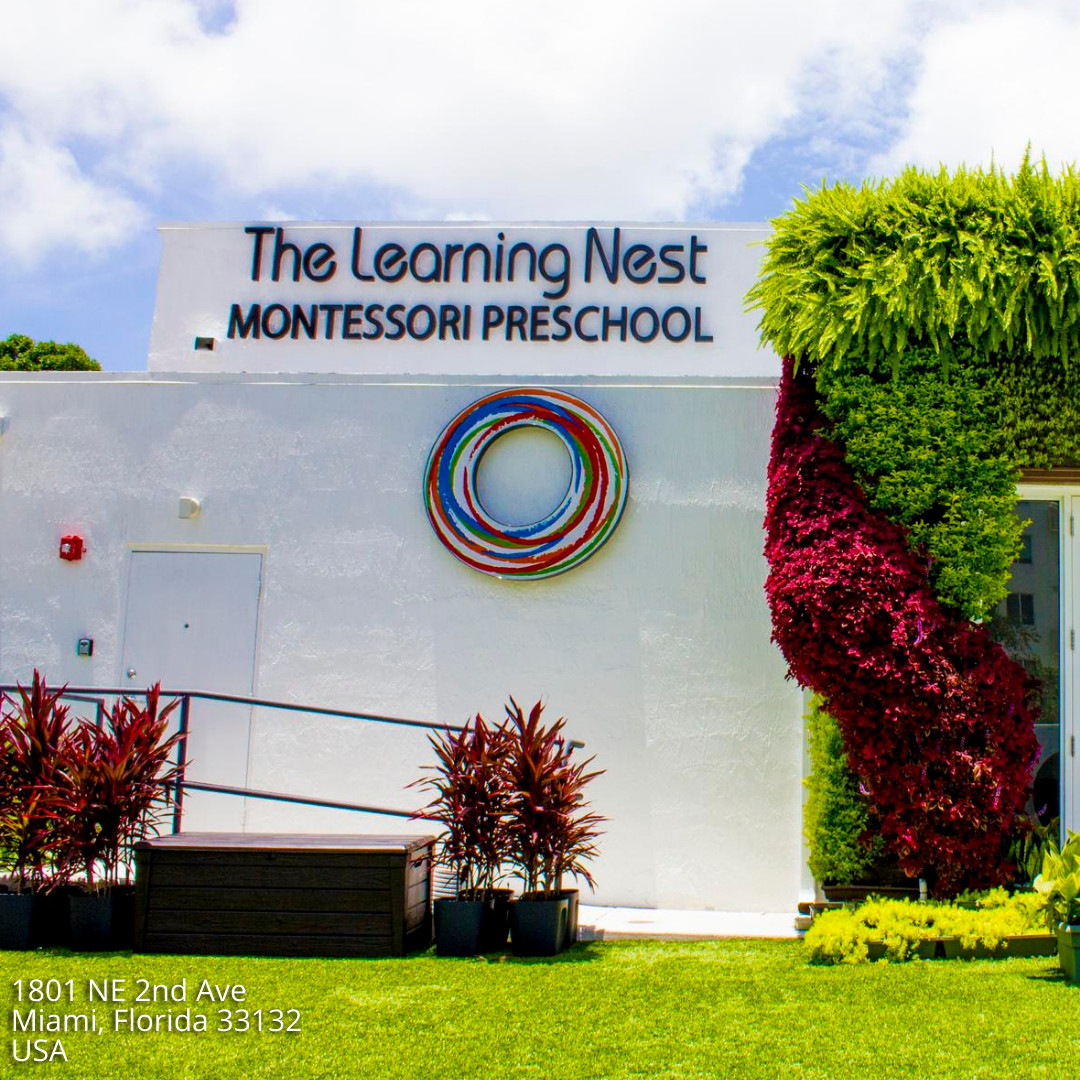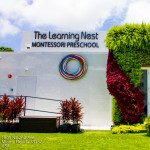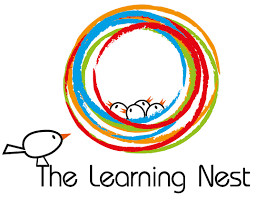Your child is finally starting kindergarten. It is normal to feel excited about this milestone and want to prepare yourself for the next phase. As you prepare to enroll your child into kindergarten, you may be curious about what your child will learn, what the kindergarten curriculum entails, and how to prepare for the resumption.
The teachers of The Learning Nest in Miami, FL, understand this curiosity and are ready to help. In this article, you will learn about what a typical kindergarten curriculum contains and how you can prepare and help your child.
What Will Your Child Learn in Kindergarten?
What your child will learn in Kindergarten depends on your location and the school. However, regardless of where you stay, your child should have learned basic concepts like writing, reading, simple maths, time, shapes, and art at the end of their kindergarten year. They will also learn basic social skills, self-awareness, and logical thinking.
By the end of the kindergarten year, your child should be able to count the number to 30, recite the alphabet letters, tell the time, and do simple addition and subtraction. They should also exhibit social skills like respecting others, cleaning up after themselves, and getting along with other kids.
However, you should know that these skills may vary in your child since kids don’t develop at the same speed. Different factors like age, location, and school might determine what your kid will learn and how fast they will learn.
How to Help Your Kid Thrive in Their Kindergarten Year
The Learning Nest offers preschool and kindergarten programs in Miami, FL
Your child is finally starting kindergarten. It is normal to feel excited about this milestone and want to prepare yourself for the next phase. As you prepare to enroll your child into kindergarten, you may be curious about what your child will learn, what the kindergarten curriculum entails, and how to prepare for the resumption.
The teachers of The Learning Nest in Miami, FL, understand this curiosity and are ready to help. In this article, you will learn about what a typical kindergarten curriculum contains and how you can prepare and help your child.
What Will Your Child Learn in Kindergarten?
What your child will learn in Kindergarten depends on your location and the school. However, regardless of where you stay, your child should have learned basic concepts like writing, reading, simple maths, time, shapes, and art at the end of their kindergarten year. They will also learn basic social skills, self-awareness, and logical thinking.
By the end of the kindergarten year, your child should be able to count the number to 30, recite the alphabet letters, tell the time, and do simple addition and subtraction. They should also exhibit social skills like respecting others, cleaning up after themselves, and getting along with other kids.
However, you should know that these skills may vary in your child since kids don’t develop at the same speed. Different factors like age, location, and school might determine what your kid will learn and how fast they will learn.
What Should a Kindergarten Curriculum Have in 2023?
Children between 18 months to 6 years need more than just classroom activities to learn. Instead, they need both classroom and extracurricular activities to keep them busy and help them develop their brain.
Hence, a robust kindergarten curriculum should contain activities that will keep them active in their classrooms and outdoors.
Although it might vary depending on location, most schools in Florida follow the same standard for their kindergarten curriculum. The essential component of a kindergarten curriculum includes the following:
1. Language
Your kid will learn to identify and recite the alphabet and make more structured sentences. During learning, their teachers will match words with visual objects to create concepts and improve development.
Your child will also learn to identify upper and lower cases letters, punctuations, rhyming words, and syllables.
2. Writing
In Kindergarten, your child will learn to identify and write simple CVC (consonant, Vowel, and Consonant) words. They will also learn to handle writing materials correctly, take dictations, write with lined and unlined papers, and express their thoughts in two or more sentences.
3. Math
Your kids will learn to identify and read letters 1 to 20 ( depending on your location and the school, it could be 1 to 30). They will also learn to do simple additions and subtractions and count objects.
Depending on the school, their teachers might introduce geometry by asking them to identify shapes. They will learn the simple concept of measurement and how to measure length, height, and breadth. They will also learn to count in 2s, 5s, and 10s.
4. Shapes and Object
Your child will learn to identify shapes such as triangles, circles, and squares. They will also learn to identify and classify objects based on color, shape, and size. They will also observe shapes of real-life objects and be able to differentiate shapes, for example, between a square and a rectangle.
5. Time and Season
Although the full concept of time is still complicated for your child at this stage, they can learn to understand the simple concept of time by linking it to their daily activities and identifying events by time.
At this stage, your child will also learn the simple concept of weather. They will learn about the four seasons and identify them using illustration pictures.
6. Social Studies
In kindergarten, your kids will be introduced to the family system and how society works. They will learn the concept of respect, group work, and how to relate with other kids. They will also learn to complete activities independently and fit into their community.
7. Autonomy and Self-Awareness
Through physical activities, your kids will learn basic skills they need in daily life, like pouring liquids, preparing snacks, washing their hands, and folding their clothes.
These activities will help to develop your child’s fine motor control, hand and eye coordination, independence, responsibility, and cooperation.
8. Physical Education
Your kids will engage in physical activities like jumping, running, skipping, and throwing. These skills will improve their physical fitness and boost their self-confidence.
9. Art
Your Kid’s kindergarten curriculum includes an introduction to art. Your kids will be introduced to the beauty of art through experimentation and engagement. They will be encouraged to develop ideas through drawing, painting, cutting, gluing, and learning about art and artists.
10. Music
In kindergarten, your kid will also be introduced to music. The teacher will introduce them to sound and music through movement, singing, and group activities.
How to Help Your Kid Thrive in Their Kindergarten Year
Your role as a parent doesn’t end with enrolling your kid in school. To help your child understand what they are taught in school better, you must engage them in some activities at home.
1. Engage Them in Reading and Writing at Home
Buy age-appropriate books for your kids and read to them or encourage them to read on their own, depending on their age. Encourage them to read the words on signboards, billboards, computer screens, and magazines.
Also, get a box of writing materials like pencils, crayons, markers, and paper and encourage them to practice writing at home. Give them writing prompts and ask them to read what they have written out loud.
2. Counting of Numbers at Home
Engage your kids in activities that involve identifying numbers. You can ask them to cut out numbers from 1 to 30 from different materials and glue them to a board in the correct order. Ask them to count objects they have at home, like books, cups, and spoons.
Also, engage your kids in simple addition and subtraction by asking them to count objects, take some away and count what’s left.
3. Identifying Shapes and Objects
Ask your kids to identify and classify objects at home differently. For example, ask them to name items in the bathroom or the kitchen. Also, encourage them to organize toys and items by shape and color. Engage them in drawing and ask them to draw different shapes. You can also cut out shapes and objects and ask them to identify them.
4. Understanding Time
Constantly read the clock out for their understanding. Encourage them to identify activities and events by time. For example, breakfast in the morning, lunch by noon, and dinner in the evening.
You can also encourage your older kids ( 5 and 6-year-olds) to identify the time of the day by asking them to read the clock.
Also, help your kids to understand the four seasons by engaging them in discussions and activities about the weather and the seasons. Using illustration images, encourage them to identify spring, summer, autumn, and winter.
5. Physical Activities at Home
Encourage your kids to engage in physical activities like walking, running, jogging, and swimming to keep them active and help them develop strong bones.
Essential Tips to Choose the Best Kindergarten for Your Kid
With so many options to choose from, choosing the best kindergarten for your kid can be confusing. To make the process easier, there are some essential factors to look out for when checking out schools for your kid and they include the following:
1. The school curriculum
The school curriculum and extracurricular activities are some of the most important factors to consider when choosing a school for your child. Ask your selected schools to show you their curriculum and ensure that it contains some (or all) of the activities listed above.
2. Learning Environment
Check the school’s environment to see if it is conducive to your child’s safety and growth. Ensure the school has essential facilities like a library, computer lab, reading resources, safe playing ground, and sick bay. Ensure the school’s environment is clean and safe for your child’s health.
3. Class Size
Large class size is not always favorable for a child’s development. With smaller classrooms, the teacher can pay attention to each child and their needs. Ask the school for their teacher-student ratio and ensure that it is not too large for the benefit of your child.
About The Learning Nest
The Learning Nest, or TLN, is a school that is determined to help kids in Miami and other communities in Florida to grow and develop healthily through active and inclusive learning.
Since its inception in 1989, it has maintained a reputation as one of the best preschools and kindergartens for kids in Florida, with a conducive and fully equipped learning environment, highly-trained teachers, and a robust curriculum and extracurricular activities.
They offer preschool and kindergarten programs to kids between 18 months and six years old, and they have the full-day option in their programs.
For more inquiries about information about their programs, contact TLN School at (786) 796-8563 or visit their website.
Your role as a parent doesn’t end with enrolling your kid in school. To help your child understand what they are taught in school better, you must engage them in some activities at home.






